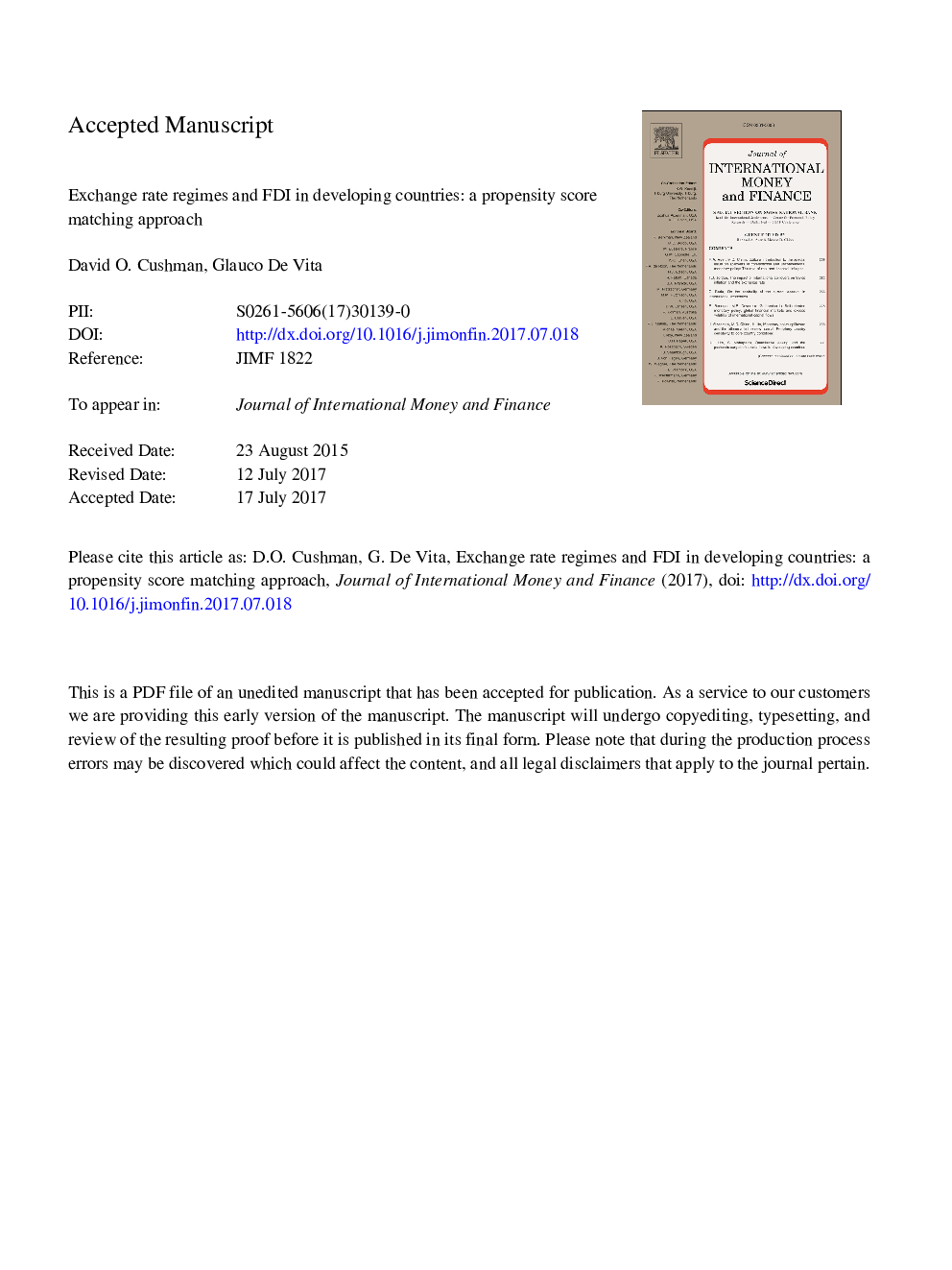| Article ID | Journal | Published Year | Pages | File Type |
|---|---|---|---|---|
| 5101094 | Journal of International Money and Finance | 2017 | 52 Pages |
Abstract
Theory suggests that regimes of relatively fixed exchange rates encourage inward foreign direct investment (FDI) relative to regimes of more flexible exchange rates. We use propensity score matching (PSM) to investigate the relationship between the exchange rate regimes of 70 developing countries and FDI into such countries using de facto regime classifications. We include a large number of variables in the logit equation that estimates the propensity score, the probability of regime choice. We also use general-to-specific modeling to get alternative, parsimonious versions. Based on four matching procedures, the average treatment effects suggest, with overall modest statistical significance, that relatively fixed de facto regimes do encourage FDI compared with relatively floating regimes. In addition, the estimated effects are sometimes economically large.
Keywords
Related Topics
Social Sciences and Humanities
Economics, Econometrics and Finance
Economics and Econometrics
Authors
David O. Cushman, Glauco De Vita,
